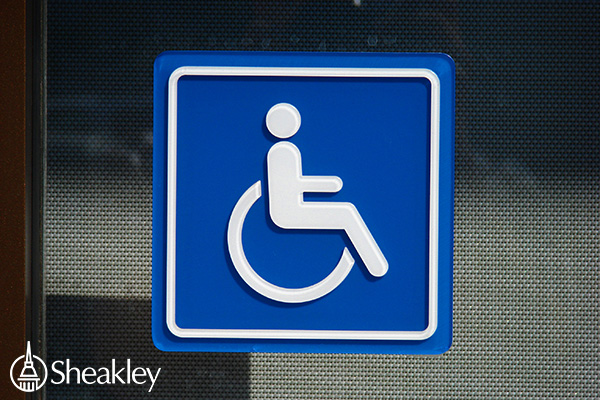Reading time 4 Mins
Published on Sep 25
Share
Reducing barriers for handicapped employees’ entry into the workplace
To encourage Ohio employers to hire and retain employees with handicapped conditions, the Ohio Bureau of Workers’ Compensation (BWC) offers the Handicap Reimbursement program to help employers reduce their claims experience costs associated with workplace injuries sustained by a handicap employee. By offering the reimbursement award on claims made by an injured employee with a pre-existing physical or mental impairment, the BWC helps offset the challenges handicapped candidates often experience in the workplace. Learn more about how the Handicap Reimbursement Program can help you foster a workplace friendlier to handicapped employees.
Eligibility
For the purposes of workers’ compensation, Ohio law defines a handicapped employee as one who is afflicted with or subject to a physical or mental impairment, such that the impairment constitutes a handicap in obtaining employment or re-employment. Arthritis, diabetes, cardiac disease and epilepsy are among the 25 eligible diseases or conditions the Ohio law recognizes.
The employer does not have to show that they were aware of the employee’s handicap at the time of hiring or prior to filing the claim to be eligible for handicap reimbursement. The employer must be able to show that the handicapped condition pre-existed the date of injury and that the handicap either caused the claim or contributed to increased costs or delays in recovery. To be eligible for the reimbursement, the BWC must have paid one of the following kinds of compensation in the claim: temporary total, permanent total disability, scheduled loss awards, death benefits or wages in lieu of temporary total compensation (salary continuation).
Settlement of a claim does not affect an employer’s right to have a handicap reimbursement application considered. Once granted, the BWC applies the handicap reimbursement award to the following claims awards and reserves: temporary total, permanent total disability, scheduled loss awards, death benefits, medical payments, claims reserves and lump sum settlements with dates specified in the OAC.
Application process
Employers may apply for reimbursement of claims costs by filing an Application for Handicap Reimbursement (CHP-4-A) when a handicapped employee suffers a lost-time/industrial injury or occupational disease or death and files an allowed workers’ compensation claim. The employer must file the CHP-4-A while the claim is within the employer’s experience period. Applications must be hand-delivered to the BWC Customer Service Center in Columbus or mailed to the BWC.
For claims made on or before December 31, 2009, private state-fund employers must file handicap reimbursement applications by June 30 of the year no more than six years from the date of the injury. For claims made on or after January 1, 2010, if the date of injury is between January 1 and June 30, private state-fund employers must file handicap reimbursement applications by June 30 of the year no more than six years from the year of the date of injury. If the date of injury is between July 1 and December 31, private state-fund employers must file handicap reimbursement application by June 30 of the year no more than seven years from the year of the date of the injury.
Public employers must file handicap reimbursement applications by December 31 of the year no more than five years from the year of the date of injury for claims with a date of injury on or before December 31, 2009. For claims with a date of injury on or after January 1, 2010, public employers must file handicap reimbursement applications by December 31 of the year no more than six years from the year of the date of the injury or occupational disease.
Self-insuring employers are no longer eligible to participate in the handicap reimbursement program.
Once an employer has submitted their reimbursement application, the BWC processes the application, and a BWC attorney conducts a conference to determine whether the BWC should charge a percentage of the claim’s costs to the statutory surplus fund instead of the employer’s experience. If BWC grants the application, the appropriate adjustment to the employer’s experience calculation is made.
While the BWC initially approves or denies applications, the employer has the right to appeal the determination to the Ohio Industrial Commission within 14 days of the BWC’s decision.
Handicap Reimbursement Program and Sheakley
Receive your no-cost analysis from Sheakley today to learn more and discover how the Handicap Reimbursement program can help make your company more inclusive. Just complete the AC-3 and one of our Workers’ Compensation experts will be in contact soon.
Stay up-to-date on all things Sheakley by subscribing to our blog and following us on social media. Join in the discussion by commenting below.




